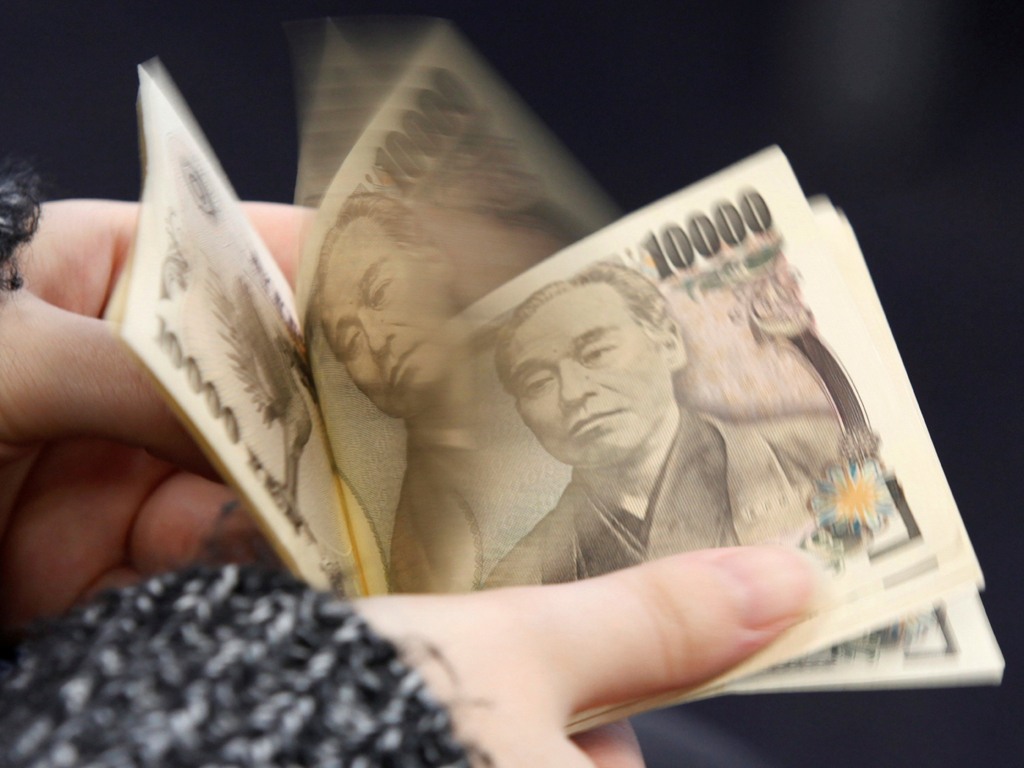Yen up, risk-sensitive units down in Asia

The safe-haven yen rose and risk-sensitive currencies fell on Thursday after US President Donald Trump's formal endorsement of Hong Kong's anti-government protesters, seen as potentially derailing recent Sino-US progress on trade.
On Wednesday, Trump signed into law congressional legislation that supported the protesters despite angry objections from Beijing. That pushed the offshore yuan lower on worries it would worsen already fractious relations between the United States and China.
The Swiss franc and gold also rose on Thursday as investors sought other safe harbours due to concerns about a potential increase in geopolitical risk. In response to the US move, China's foreign ministry said it resolutely opposed the law and threatened to take firm counter-measures, complicating efforts to scale back a 16-month long trade war between the world's two-largest economies.
"The yen is being bought because of the news about Trump signing the Hong Kong bill," said Yukio Ishizuki, foreign exchange strategist at Daiwa Securities in Tokyo. "Algorithmic trading could push the yen up further, but the dollar's losses will be limited because we've had positive US economic data, which has lifted sentiment."
The yen rose 0.12% to 109.42 versus the dollar on Thursday, rebounding from a six-month low reached Wednesday after US economic growth was revised up in the third quarter. The Australian dollar, which is often traded as a proxy for global commodity demand, fell to a six-week low of $0.6764.
In the offshore market, the yuan fell 0.18% to 7.0269 per dollar. In the onshore market, the yuan was little changed at 7.0280 versus the greenback. China's foreign ministry also said on Thursday that US attempts to interfere in Hong Kong are "doomed to fail."
The US bill signed on Wednesday requires the State Department to certify, at least annually, that Hong Kong retains enough autonomy to justify favourable US trading terms, which have helped it maintain its position as a global financial hub.
The law also threatens sanctions for human rights violations in Hong Kong, which has been rocked by months of civil unrest in response to what protesters say is an erosion of freedoms since reverting to Chinese rule in 1997. Beijing has denied any undue influence and has blamed foreign governments for meddling in Hong Kong's affairs.
Many see the US legislation as symbolic, but it has the potential, if implemented, to further rock relations between the United States and China. Washington's rebuke also comes as US and Chinese negotiators are trying to reach an agreement to de-escalate a trade war, which would remove a huge headwind from the global economic outlook.
The United States and China have imposed tariffs on each other's goods in a prolonged dispute over Chinese trade practices that the US government says is unfair. Investor uncertainty benefited the Swiss franc, which pulled back from a two-month low to trade at 0.9990 against the greenback.
Gold, another safe haven bought in times of uncertainty, rose 0.16% to $1,456.66 per ounce. The rise in safe havens undermined the dollar, which came into Asian trade on a high after revised data showed US economic growth picked up slightly in the third quarter.
Separate data showed new orders for key US-made capital goods increased by the most in nine months in October and shipments rebounded.























Comments
Comments are closed.